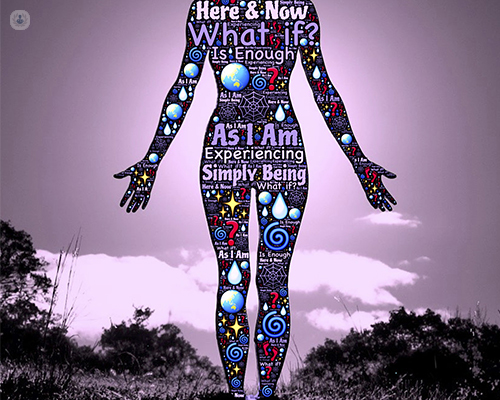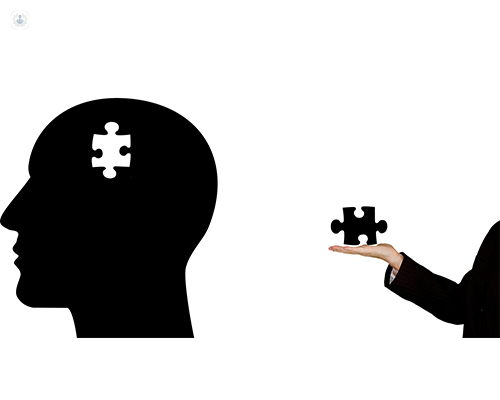To be or not to be: what is existential psychotherapy?
Autore:As the well-known quote goes, existence and purpose are often pondered; but there is now an application of existence in psychotherapy that can help clients in any situation. In this article, expert in this approach registered counselling psychologist Dr Kate Du Toit describes what existential psychotherapy is and how it can be beneficial.

What is existential psychotherapy?
Existential psychotherapy takes a profoundly philosophical approach towards counselling or psychotherapy that concerns itself with an examination of the human condition as a whole. The existential approach comprises of a diverse range of theories and practices stemming from phenomenological and existential philosophies, most commonly (but not exclusively) associated with philosophers such as Friedrich Nietzsche, Soren Kierkegaard, Martin Heidegger, Jean-Paul Sartre, Albert Camus, and Simone de Beauvoir. Whilst different in their ideologies, these philosophers share a common interest in a wide-ranging exploration of human existence. Existential therapy is therefore ultimately concerned with fundamental questions pertaining to what it means to be alive, such as:
- What is the meaning of life?
- Does my existence have any meaning or purpose?
- What is my purpose?
- Who am I?
- What is the nature of my identity?
- How shall I live my life?
- Am I free or determined?
- How do I exist in the face of uncertainty, conflict, and death?
This uniquely philosophical approach involves an in-depth process of exploration, self-discovery, and meaning making that seeks to uncover how each individual, within their social, cultural, and historical context, comes to choose, create, and sustain their mode of living. The existential approach avoids restrictive models of understanding human distress that seek to categorise or label people based on pre-established categories of meaning or interpretation, and instead focuses on a holistic understanding of problems in living that take into account all dimensions of lived experience (i.e., physical, social, personal, and spiritual) within one’s contextual and historical embeddedness in the world. With this in mind, the very act of defining such an approach is often considered contradictory to its very nature.
How is the existential psychotherapy approach used?
In keeping with its strong philosophical foundations, existential therapy concerns itself with themes that are universally and culturally applicable to the human condition itself, including freedom of choice, responsibility, uncertainty, the search for meaning, and the inevitability of anxiety and ultimately death. These themes are examined and explored in the context of the client’s life, thereby exposing various relational and emotional patterns, alongside deeply embodied attitudes, values, beliefs, choices, and assumptions that may perpetuate their problems in living. Through active engagement, collaboration, and discussion, the client’s worldviews are examined, challenged, or reconsidered in light of their struggles, enabling them to connect with wider possibilities and ways of being that may be more fulfilling and authentic. This explorative and facilitative process is intended to help individuals take greater responsibility, consciously and actively, for shaping their lives in ways that they identity as more satisfying and meaningful to them.
The practice of existential therapy is characterised by an emphasis on dialogue, spontaneity, flexibility, creativity, and relatedness. It considers the immediacy of the therapeutic relationship as fundamental to the therapeutic endeavour, as well as an exploration of the relationship one has with themselves, others and the world around them. An existential therapist will focus on the subjective lived experience of a person rather than using theoretical or universal laws, dogma, or rigid doctrines to guide understanding of experience. Essentially, this means less emphasis is placed on diagnosis or rapid relief of symptoms, and instead therapy is focused on an in-depth exploration that considers the function of psychological disturbances, where symptoms are viewed as potentially meaningful responses to one’s unique set of circumstances and historical background.
What is the main goal? What are the other goals in existential psychotherapy?
From an existential perspective, pain, suffering, and crises are all inevitable parts of life, given the ever-evolving nature of human existence. It is how one chooses to respond to the constraints and paradoxes of human existence that determines how one’s way of being in the world is created, shaped, and lived. A strong ambition of the existential approach thus lies in its commitment to promote a person’s capacity to actively recognise and accept their responsibility and freedom; to choose deliberately, to act with conscious intention, and to live authentically (i.e., in accordance with their principles and values).
In essence, the primary goal of an existential approach is to help clients clarify their situation, confront their struggles, and take stock of their predicaments. By widening their perspective of themselves and the world around them and tackling the inevitable conflicts and dilemmas of their existence, clients are encouraged to reflect upon how they wish to live and what stands in the way of change. This exploratory process is aimed at fostering increased awareness, self-understanding, motivation, and efficacy in being able to take responsibility for the ways in which they have chosen to live, and consequently how they choose to live their lives moving forward.
What kind of techniques are used in existential psychotherapy?
In line with its philosophical premise, existential therapy does not rest upon any pre-established techniques. Rather, it provides therapists with a set of guiding philosophical principles that underpin their practice. In addition to the abovementioned ethos underpinning this approach, what is common amongst virtually all existential practice is the phenomenological method. This mode of inquiry is underpinned by an attitude that seeks to describe, clarify, and understand subjective lived experience and the meanings inherent within them. Here, the therapist attempts to retain a sense of openness and receptivity that is free of expectations, to listen holistically, to be curiously present and actively engaged, and to suspend any preconceptions regarding the process. The purpose is to identify and illuminate the essence of an experience and how that experience is perceived, understood, and made sense of by the person experiencing it.

Who would benefit from existential psychotherapy?
Existential psychotherapy can be utilised with a broad range of clients and presenting issues. Almost anyone can benefit from this approach given its emphasis on self-discovery and meaning making. It is particularly well suited to those who are interested in exploring their own philosophical stance in life and seeking to clarify their own ideology. Considering its emphasis on the interrelatedness of human existence, it can also be especially beneficial for those from diverse cultural or ethnic backgrounds. Some common issues that tend to be well suited to this approach include:
- anxiety
- depression
- anger
- relationship issues
- feelings of alienation
- life transitions
- meaninglessness
- identity issues
- sexuality and gender issues
- addiction
- confronting death and loss
How effective is it?
Several studies indicate that existential psychotherapy is particularly beneficial to a variety of client groups and can lead to an increased overall sense of well-being and meaning in one’s life. Its emphasis on facilitating meaning has similarly been shown to be a generally significant factor in predicting effective therapeutic outcomes. As an approach that places significance on the centrality of the therapeutic relationship, it is also considered to be effective in facilitating positive therapeutic change. This is consistent with decades worth of scientific research that has repeatedly and consistently demonstrated that the effectiveness of psychotherapy (regardless of modality or approach) is largely dependent upon the characteristics and preferences of the client, the therapist, and the quality of the relationship between them.
If you feel that existential therapy would benefit you or you would like to find out more information, you can go to Dr Du Toit's profile and book a consultation.


